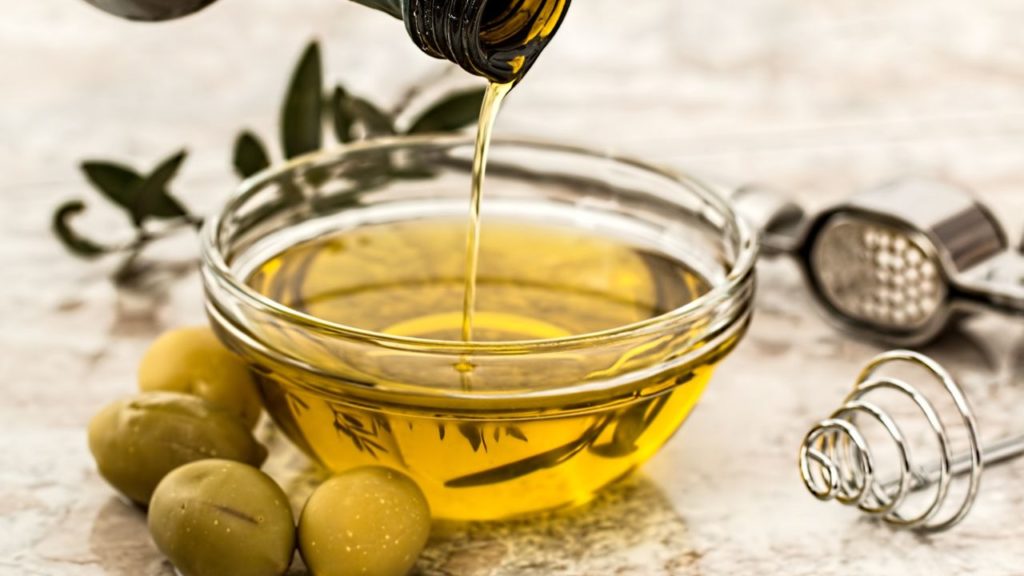Inflammation can be beneficial or detrimental. On the one hand, it aids in the body’s defense against infection and harm. Conversely, prolonged inflammation can result in disease. Stress, poor levels of physical activity, and foods that induce inflammation can increase this risk. However, research indicates that certain foods can help reduce chronic inflammation.
Here are 10 foods that are anti-inflammatory.
1. Berries
Berries are small, nutrient-rich fruits that are rich in fiber, vitamins, and minerals.
Dozens of variants exist. Among the most frequent ones are:
- Strawberries
- Blueberries
- Raspberries
- Blackberries
Anthocyanins are the antioxidants found in berries. These substances have anti-inflammatory properties that may lower your disease risk
In a study involving 25 adults, those who drank daily blueberry powder produced considerably more natural killer cells (NK cells) than those who did not. These results mirrored those of an older study.
Your body naturally creates NK cells, which aid in maintaining a healthy immune system.
In a separate study, adults with obesity who consumed strawberries had lower levels of inflammatory markers linked to heart disease than those who did not consume strawberries.
2. Fatty fish
Protein and the long-chain omega-3 fatty acids eicosapentaenoic acid (EPA) and docosahexaenoic acid (DHA) are abundant in fatty fish (DHA). Despite the fact that all fish contain some omega-3 fatty acids, these fatty fish are among the finest sources:
- salmon
- sardines
- herring
- mackerel
- anchovies
EPA and DHA suppress inflammation, which can contribute to metabolic syndrome, cardiovascular disease, diabetes, and kidney disease. These fatty acids are metabolized by your body into anti-inflammatory chemicals known as resolvins and protectins. According to studies, those who consumed salmon or EPA and DHA supplementation had lower levels of the inflammatory marker C-reactive protein (CRP).
In one trial, however, there was no difference in inflammatory markers between those with an irregular heartbeat who took EPA and DHA daily compared to those who received a placebo.
3. Broccoli
Broccoli is highly nutritive. Like cauliflower, Brussels sprouts, and kale, broccoli is a cruciferous vegetable. According to research, cruciferous vegetable consumption is connected with a reduced risk of heart disease and cancer. This may be due to their antioxidants’ anti-inflammatory properties. Broccoli is rich in sulforaphane, an antioxidant that reduces inflammation by lowering levels of cytokines and nuclear factor kappa B (NF-B), which are chemicals that induce inflammation in the body.
4. Green tea
You have likely heard that green tea is among the healthiest beverages available. It is related with a lower risk of heart disease, cancer, Alzheimer’s disease, obesity, and other illnesses, according to research. Many of its advantages are attributable to its antioxidant and anti-inflammatory qualities, particularly a compound known as epigallocatechin-3-gallate (EGCG). EGCG suppresses inflammation by decreasing pro-inflammatory cytokine production and cell membrane damage.
5. Grapes
Grapes include the anti-inflammatory anthocyanins. In addition, they may reduce the risk of heart disease, diabetes, obesity, Alzheimer’s disease, and eye issues.
Additionally, grapes are one of the richest sources of resveratrol, an antioxidant molecule with numerous health advantages. According to studies, resveratrol can protect the heart against inflammation. In a trial involving 60 individuals with heart failure, those who received two 50 mg capsules of resveratrol daily for three months had a reduction in inflammatory gene markers, including interleukin 6. (IL-6).
An older 2012 study indicated that adults who consumed grape extract regularly had elevated levels of adiponectin. Low levels of this hormone are linked to obesity and an increased cancer risk.
6. Turmeric
The warm, earthy flavor of turmeric is commonly found in curries and other Indian cuisines.
It has gained much interest due to the presence of curcumin, a potent anti-inflammatory molecule. Turmeric decreases inflammation associated with arthritis, diabetes, and other disorders, according to research.
In one trial, individuals with metabolic syndrome were given 1 gram of curcumin and piperine from black pepper daily. They saw a considerable reduction in CRP levels, an indicator of inflammation.
It may be difficult to obtain sufficient curcumin from turmeric alone for a visible effect. The effectiveness of curcumin supplements containing isolated curcumin may be significantly enhanced. Supplements containing curcumin are frequently coupled with piperine, which can increase curcumin absorption by 2,000%. More research is required to determine how turmeric dose affects inflammatory indicators.
7. Extra virgin olive oil
Olive oil is one of the healthiest lipids you can consume. It is rich in monounsaturated fats and a staple of the Mediterranean diet, which has many health benefits.
Studies have linked extra virgin olive oil to a decreased risk of cardiovascular disease, brain cancer, and other major health disorders. In one 12-month trial on the Mediterranean diet, CRP and numerous other inflammatory markers reduced dramatically in participants who ingested 50 milliliters (1.7 ounces) of olive oil daily.
The anti-inflammatory effects of oleocanthal, an antioxidant present in olive oil, have been likened to those of ibuprofen. Extra virgin olive oil has more anti-inflammatory properties than refined olive oil.
8. Dark chocolate and cocoa
Dark chocolate is delectable, opulent, and satiating. It is also rich in antioxidants, which assist to alleviate inflammation. These may minimize your disease risk and promote a healthier aging process.
Flavanols are responsible for chocolate’s anti-inflammatory properties and contribute to the health of the endothelial cells lining your arteries. In a tiny trial, individuals who ingested 350 mg of cocoa flavanols twice day for two weeks had enhanced vascular function. However, additional high-quality research on chocolate and its constituents is required.
In the interim, it is not harmful to consume dark chocolate with at least 70% cocoa — a higher proportion is preferable — in order to gain these anti-inflammatory advantages.
9. Tomatoes
Tomatoes are nutrient powerhouses.
Tomatoes are rich in vitamin C, potassium, and lycopene, an anti-inflammatory antioxidant with outstanding effects. Lycopene may be especially effective for lowering pro-inflammatory chemicals associated with multiple cancer types.
Note that cooking tomatoes in olive oil can increase their lycopene absorption. This is due to the fact that lycopene is a carotenoid, a nutrient that is better absorbed with a fat source.
Cherries 10
Cherries are delectable and rich in anti-inflammatory antioxidants, such as anthocyanins and catechins.
Although more research has been conducted on the health-promoting characteristics of tart cherries, sweet cherries also give health advantages. Those who ingested 16 ounces (480 mL) of tart cherry juice daily for 12 weeks had considerably lower levels of the inflammatory marker CRP, according to a study involving 37 older adults.
However, a separate study indicated that after 30 days of daily consumption, tart cherry juice had no effect on inflammation in healthy young adults.
More research is required to determine whether or not cherries can lessen inflammation.
Inflammatory foods
In addition to including beneficial anti-inflammatory elements in your diet, it is essential to restrict your intake of foods that can increase inflammation. For instance, ultra-processed foods such as fast food, frozen meals, and processed meats have been linked to increased blood levels of inflammatory indicators such as CRP.
Moreover, fried foods and partially hydrogenated oils include trans fats, a form of unsaturated fatty acid linked by research to higher levels of inflammation. Other foods, such as sugary drinks and refined carbohydrates, have also been proven to cause inflammation.
The following foods have been associated to elevated inflammatory levels:
- Processed foods: potato chips and fast food
- Refined carbs: white breads, white rice, crackers, and biscuits
- Fried foods: fries, fried chicken, and mozzarella sticks
- Sugar-sweetened beverages: soda, sweet tea, and sports drinks
- Processed meats: bacon, ham, and hot dogs
- Trans fats: margarine and shortening
Keep in mind that eating these occasionally is entirely healthy. Just try to maintain a well-balanced diet consisting primarily of whole foods, including an abundance of fruits and vegetables. It is recommended to stick to lightly processed foods.
The conclusion
Chronic inflammation, even at modest levels, can lead to disease. Choose a wide selection of delectable, antioxidant-rich foods to help keep inflammation in check. Dark chocolate, seafood, and extra virgin olive oil are just a few of the foods that can aid in reducing inflammation and sickness risk.

